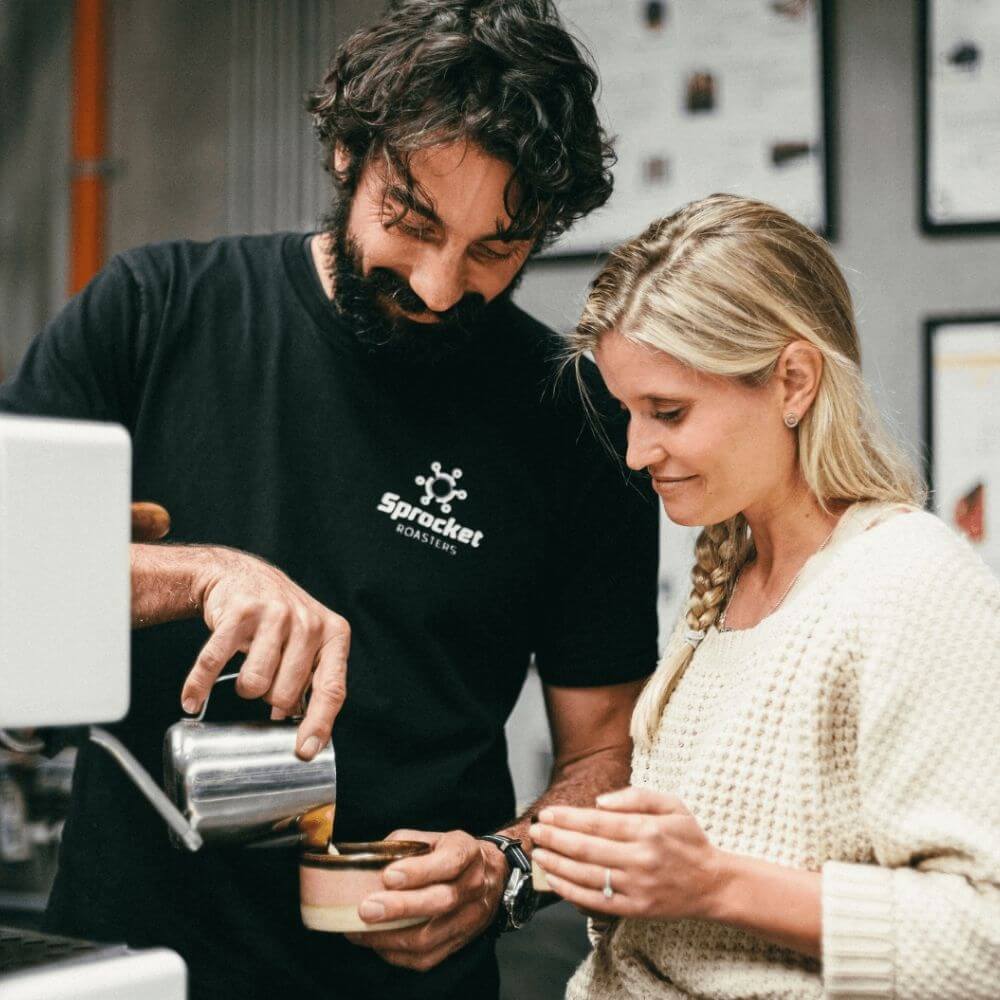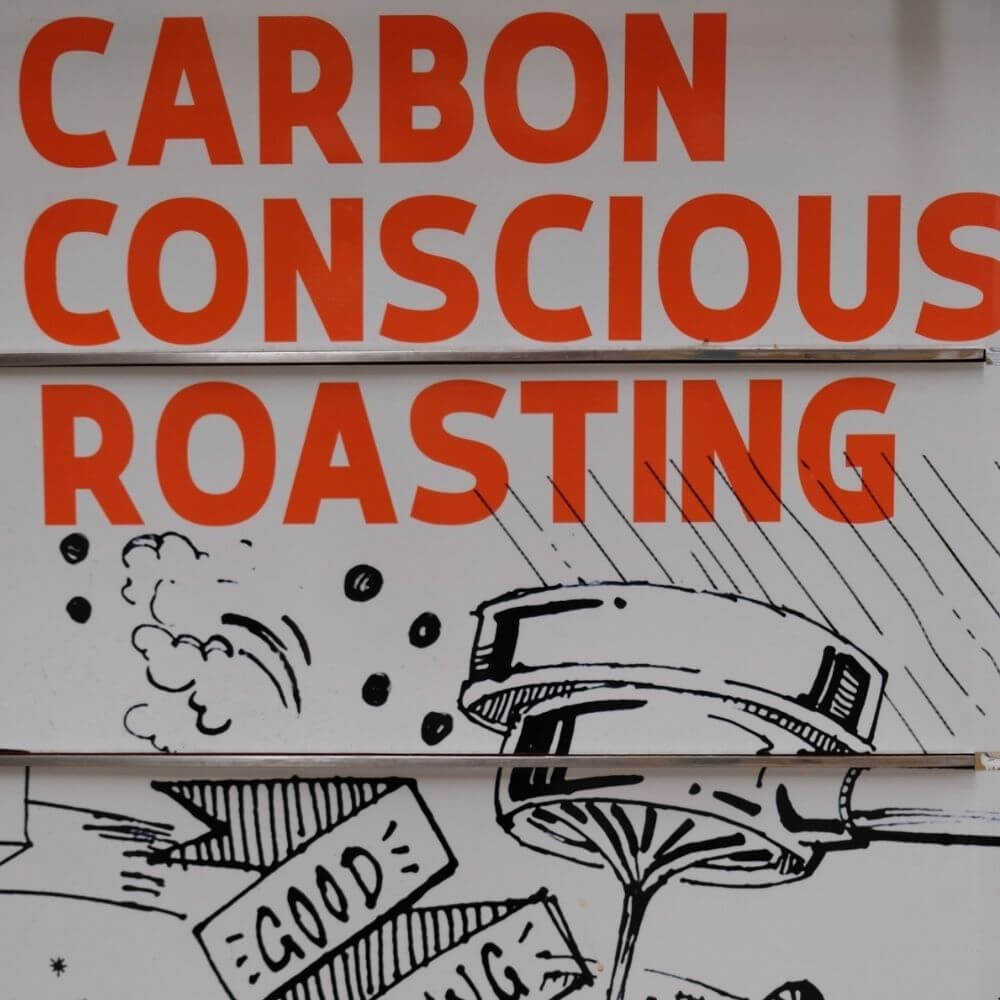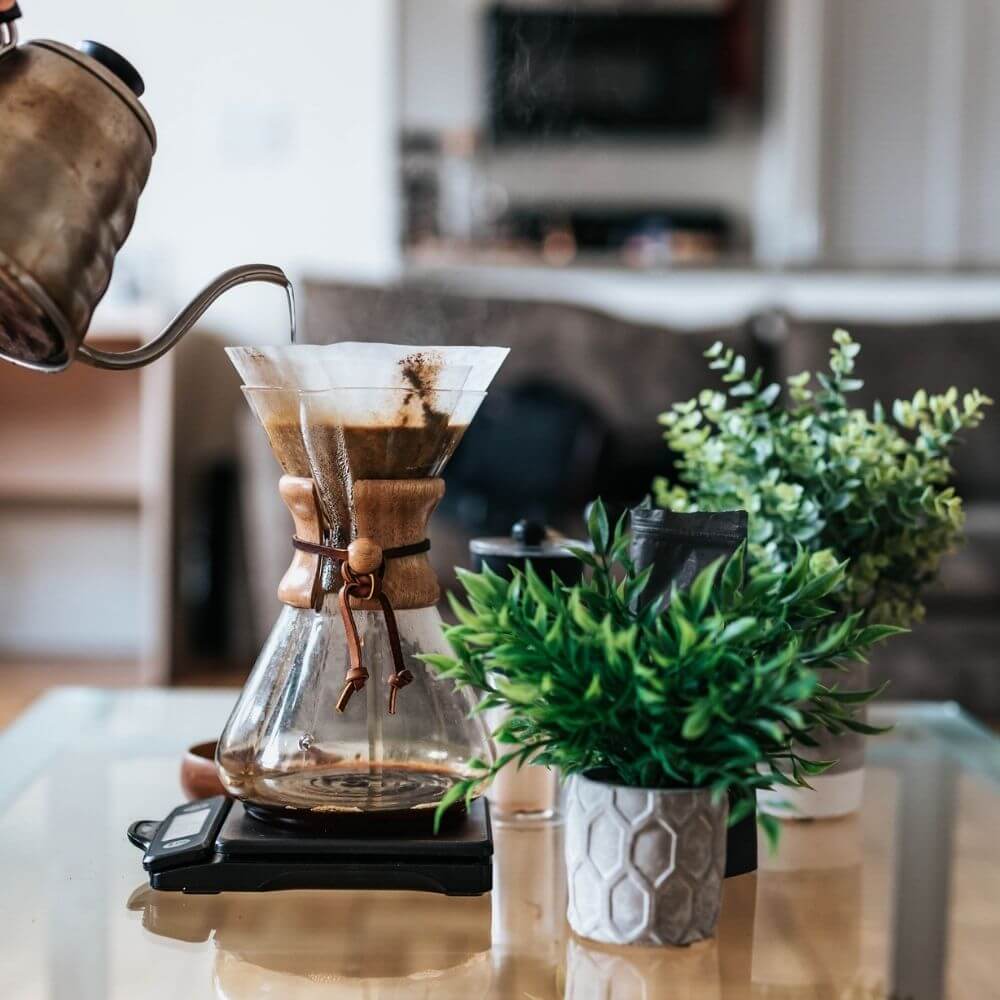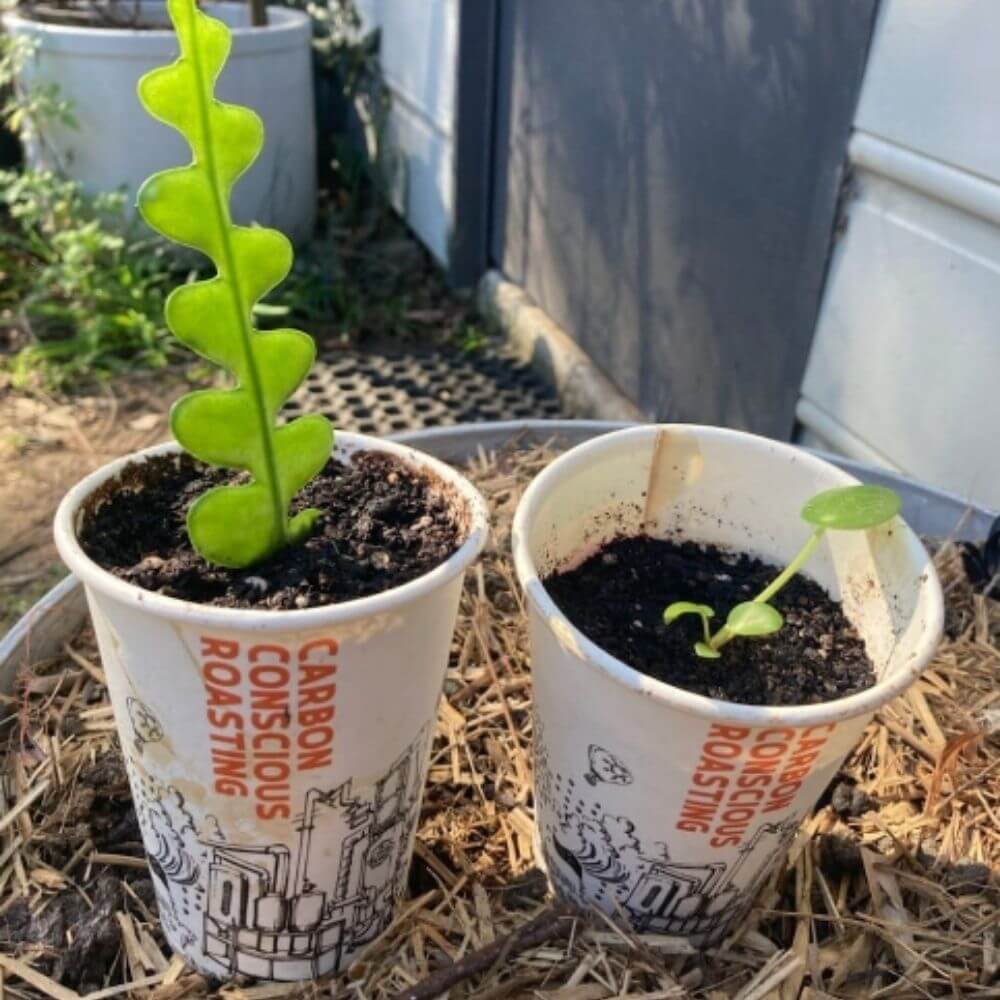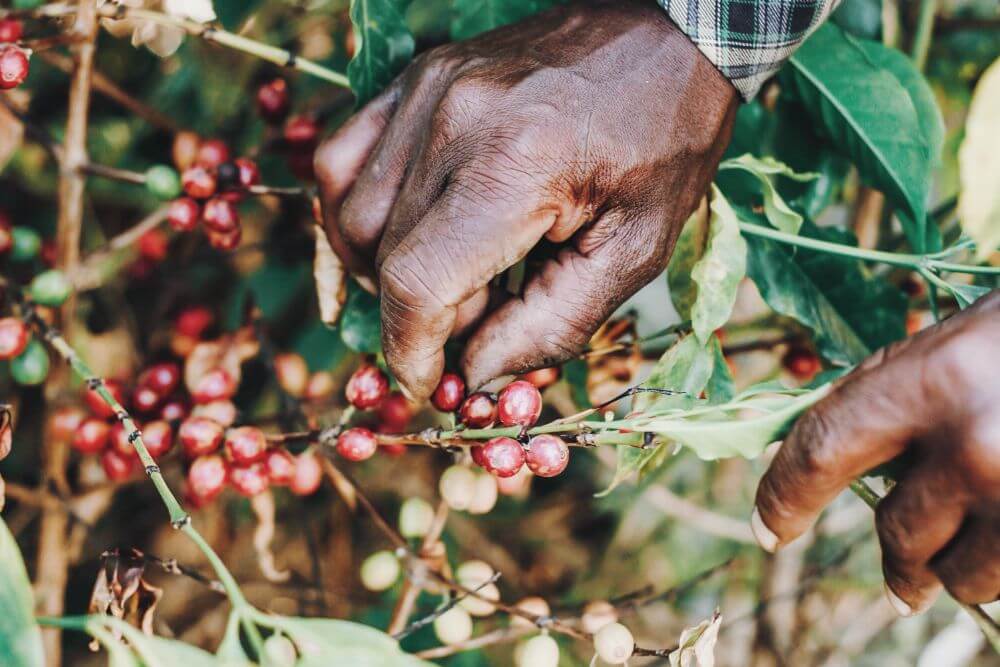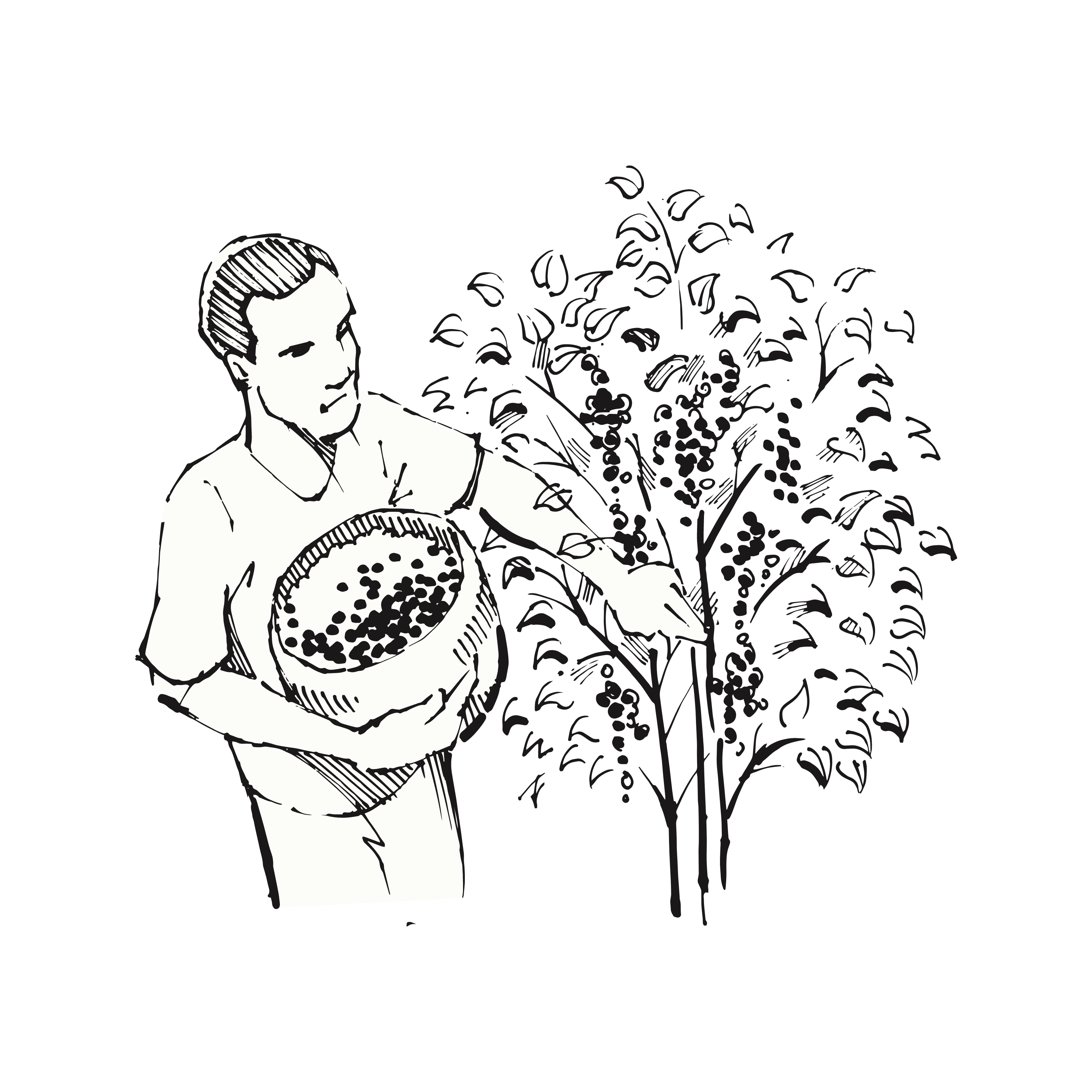Here are five reasons why some corners just can’t be cut in the name of cost savings:
- Commodity vs specialty beans
Coffee purchased from the major grocery chain retailers is often cheaper than freshly roasted coffee from your local roaster, but this is because they stock commodity coffee – coffee that is often grown quickly and on large-scale operations, with less concern around quality. These coffee beans destined for the commercial sphere are collected in large batches from farming areas; it’s then mixed in bulk lots, making it cheaper because its mass produced.
Specialty coffee, on the other hand, is graded for defects. Each crop must score between 80 to 100. Roasters purchase their single-origin beans from farms usually grown in smaller batches; there is more traceability as the coffee travels from bean to cup. Your local roaster will be able to provide you with specific information about where your coffee comes from and the growing conditions in the area. The quality control, harvesting methods and production levels are all regulated, ensuring you’re getting the highest quality bang for buck in your morning cup.
- A longer distribution chain impacts freshness
Supermarket items have quite a few stops to make along the way from point of processing until they reach your hot little hand. They have to be shipped from the original point of the industrial coffee roasting facility to the supermarket chain’s major distribution centre, then sent back out on another truck to reach your local grocery store branch; and finally, stocked on the shelves. Some supermarket coffee brands are even roasted overseas and have much further to travel to reach their end point. Often these major coffee brands can sit on the grocery store shelf for many weeks (likely months) before it finally reaches your cup.
Local coffee roasters, on the other hand, are roasting daily or weekly to ensure optimal freshness. There is only one stop in the distribution process once the beans have been roasted, as it moves straight from the roastery to your doorstep. As a result, you’re getting the freshest coffee possible by cutting out the multiple stops made within the distribution process.
Some caveats to this rule do exist, however. Many forward thinking, independent green grocers are starting to realise the importance of offering freshly roasted beans to compliment locally grown, fresh produce. No longer does generic coffee cut it for these local green
grocers. In these instances, the coffee stocked is often very fresh [in comparison with the major supermarket chains] as most independent fruit and veg shops source directly from their local roaster weekly. You can normally find these local coffee options in the fresh produce section, not in the middle aisles.
- Caring for our hard-working farmers
Specialty coffee is a direct reflection of the hard work a farmer has put in – how they grow the coffee and look after their crop, the methods they pick and ways they process their beans. Innovative farmers want to improve their offering every year and are always striving to out-perform the crop they produced the previous year. Unfortunately, growers are at the mercy of the market as coffee is a global commodity that fluctuates dramatically depending on supply and demand.
Importers and roasters pay more for specialty beans because of the quality; it is imperative for consumers to support these hard-working coffee farmers and pay a fair price for beans. By purchasing specialty beans directly from your local coffee roastery, you are helping to support fair wages in the industry directly. If we don’t support the specialty coffee industry, younger generations will move off their family farms to look for more profitable careers or swap planting their family’s coffee trees for more lucrative crops.
4.) Small batch versus industrial-scale roasting
Large-scale, industrial coffee roasting companies may use flash or rapid roasting, where temperatures are much higher so the beans can be roasted in a much shorter period of time. Industrial roasters can roast their coffee very quickly at very high temperatures, whereas your local roaster will roast for a longer time at around the 200°C mark. Whilst this allows industrial roasters to pump out coffee much quicker to fill their bulk supermarket orders, it often leads to a less desirable roasted end product than that which is produced by your local, small-batch roaster.
Speed is not always better; roasting at a lower temperature will allow the coffee nuances to develop in a more complex way and produce better flavours and aromas. For some coffee drinkers, price is paramount over taste – but if you’re looking for a more premium coffee experience that elevates your morning brew, you are more likely to find this at your local roaster.
5.) Instant coffee dominates supermarket shelves
A lot of supermarket shelves are filled with instant coffee – in some countries, this accounts for more than 50% of coffee consumed! Instant coffee is coffee that has been spray-dried or freeze-dried into a fine powder. Manufacturers often need to use steam at the end of the spray-drying process to turn the powder into bigger granules, which can add to flavour loss and create a bitter, burnt taste.
Instant coffee also contains up to double the acrylamide than what is found in freshly roasted coffee. Acrylamide is both neurotoxic and carcinogenic; whilst the levels in instant coffee are
generally considered safe, consuming too much acrylamide is not advised. By choosing fresh coffee over instant coffee, you’re getting a much smaller dosage which may be important to those concerned about their health.
Instant coffee companies also add additives, oils and sugars to improve the flavour of their coffee; this can lead to risk of heart disease and weight gain if you’re drinking a lot of it. Coffee from your local roaster, on the other hand, never has any additives added – ground or whole bean, you can be assured that you’re getting your dose of caffeine without the added nasties of instant brew.
In summary, specialty coffee purchased direct from your coffee roaster is of much higher quality, small-batch roasted and guaranteed to be fresher. You will feel good knowing that you’ve got a high-quality coffee to kick start your morning whilst simultaneously supporting an industry in which the farmers are getting paid a fair price and your local roaster is being supported. The health benefits of using freshly roasted coffee over supermarket chain instant coffee are an extra value add.
Is the small, additional increase associated with choosing a specialty roaster over a supermarket brand are worth it? Heck yes. Pull out that calculator and find some other cost-saving corners, because you simply can’t afford to sacrifice on your morning brew. Delicious, high-quality coffee is one of the few perks in life we all deserve!

